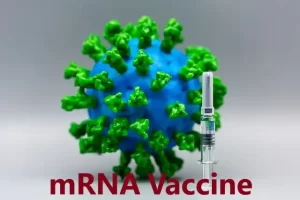Maintenance immunotherapy for advanced lung cancer: should it be continued after 2 years?
- Parasite Found in Sea Urchin’s Mouth: Still Safe to Eat?
- Breast Cancer Exploits Neural Signaling Pathways to Bypass Blood-Brain Barrier and Invade the Brain
- Dispute Intensifies: Moderna Achieves Partial Victory in mRNA Patent Battle with BioNTech and Pfizer
- Harvard Study Finds Semaglutide May Increase Risk of Blindness
- Hundreds of Sperm Donations by One Man Lead to Social Issues in Australia
- Lactic Acid: The Unexpected Ally of Cancer Cells in DNA Repair and Chemoresistance
Maintenance immunotherapy for advanced lung cancer: should it be continued after 2 years?
- Chinese-made Drug Enters Australia: Causing at Least 20 Deaths!
- How serious is Japan’s “flesh-eating bacteria” problem?
- Taiwan 6th wave of COVID outbreak: 623 confirmed cases in one week and 38 deaths
- FDA has mandated a top-level black box warning for all marketed CAR-T therapies
- Can people with high blood pressure eat peanuts?
- What is the difference between dopamine and dobutamine?
- How long can the patient live after heart stent surgery?
Maintenance immunotherapy for advanced lung cancer: should it be continued after 2 years?
For advanced lung cancer patients without driver gene mutations, immunotherapy has become the mainstream first-line treatment.
In phase III clinical trials designed for this target population of non-driver gene mutation lung cancer patients, most protocols involve the induction of immunotherapy combined with chemotherapy for 4 cycles, followed by maintenance therapy for 31 cycles, totaling 35 cycles.
With immunotherapy administered every three weeks, this equals 105 weeks (2 years) of immunotherapy before discontinuation.
Consequently, in clinical practice, a pressing question arises:
Should patients who have had sustained immunotherapy efficacy for over 2 years continue or discontinue treatment?
Continuing treatment carries the burden of high medical costs and an increased risk of immune-related adverse events. On the other hand, discontinuing treatment raises concerns about disease relapse and its impact on patient survival.
A recent large-scale retrospective analysis study published in JAMA Oncology provides some insights into this dilemma.

This study utilized data from the electronic health records (EHR) database of 280 cancer treatment centers in the United States.
The cohort included adult patients diagnosed with advanced non-driver gene mutation non-small cell lung cancer (NSCLC) between 2016 and 2021, who received first-line immune checkpoint inhibitor (ICI) therapy.
Among the 14,406 patients meeting these criteria, 1,091 patients were selected who had received immunotherapy for ≥2 years, were alive at 760 days, and had no disease progression.
Of these patients, 113 discontinued ICIs after 2 years, while 593 continued ICI therapy.
The two groups had generally similar baseline characteristics, with the 2-year discontinuation group having a slightly higher proportion of smokers.

Overall Survival (OS) in the Study Population
The study began follow-up at 760 days with a median follow-up of 14.0 (0.1-50.9) months.
The results revealed that both unadjusted raw survival data and multivariate-adjusted survival data showed no statistically significant difference in overall survival (OS) between patients who discontinued ICIs after 2 years and those who continued ICI therapy.
The hazard ratio (HR) for unadjusted raw survival data was 1.26, while the HR for multivariate-adjusted survival data was 1.33.

Discontinuation Rates (A) and Efficacy of Immune Rechallenge in Discontinued Patients (B)
Secondary analysis of the results found that discontinuation after 2 years did not negatively impact progression-free survival (PFS) for patients.
Only 1/5 of these patients experienced progression or death after discontinuing ICIs.
Among the 11 patients who experienced tumor progression (PD) after discontinuation, 8 underwent monotherapy rechallenge, and 3 received combination therapy.
The median progression-free survival (PFS2) for rechallenged patients was 8.1 months.
Summary
This large-scale retrospective analysis study does not support the continuation of ICIs after 2 years of treatment in late-stage NSCLC patients.
Because patients who received 2 years of ICI treatment maintained excellent tumor control even after discontinuation, with up to 4/5 of them not experiencing disease progression or death after 2 years of ICI discontinuation, the OS curves for the discontinuation and continuous treatment groups did not diverge significantly.
Additionally, the study found that patients who experienced progression after discontinuation could still benefit from immune rechallenge, with a median PFS of 8.1 months, and as of the data cutoff point, 1/3 of rechallenged patients were still receiving immunotherapy.
Therefore, for NSCLC patients with immune therapy who have not experienced progression, discontinuing treatment after 2 years is a reasonable approach.
This research helps bolster the confidence of clinicians and patients in making more informed decisions regarding ICI discontinuation.
(source:internet, reference only)
Disclaimer of medicaltrend.org
Important Note: The information provided is for informational purposes only and should not be considered as medical advice.



